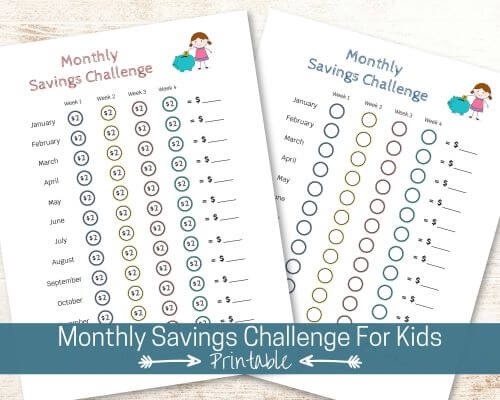
Life Skills to Teach Our Children
Our Life On Fire is written with our children in mind. They are young, under the age of 5, so they have their whole lives ahead of them to learn, grow, and experience the world around them. As parents, we have been there, made the mistakes, and have hopefully learned a heck of a lot along the way. We have grasped what it takes to be successful in life and want to give all of that knowledge to our kids. Giving our children the life skills that they need to flourish will help to set them up for success in the future.
Of course, there are the everyday lessons that we want our children to learn such as honesty, gratitude, sticking up for themselves and others, conflict resolution, and how to overcome adversity, among others.
But the list that we have composed has more to do with life skills rather than life lessons. They are skills that we want our children to know before they go off to college so that they can make more informed decisions for themselves. Giving someone else, especially your children, power in the form of knowledge is one of the best gifts that you can give them in life.

These are the top 5 life skills that we want to teach our children in order to help them succeed in life and be self sufficient, no matter which path they choose to take.
1. MONEY MANAGEMENT

Why don’t high schools have a money management class? This should be a standard and required. I think that it would be a much more beneficial class than PE, but maybe that’s because I went to an all girls high school where PE occasionally consisted of step aerobics and archery – yes, really.
In a majority of situations, if someone doesn’t show you how to manage your money, set a good example for you, or mentor you regarding money in some capacity, you will not learn this very important skill until later on in life. This is not a life skill that you want to put off. Money management should include opening a bank account, depositing a check, budgeting, and how taxes work. Learning how to manage your own personal finances should be mandatory.

2. CREDIT CARD USE AND INTEREST

It is usually in college or in their early 20s when someone gets their 1st credit card. Credit cards are a great way to build up good credit which will help you in the future but teaching your kids responsible credit card use is crucial. Some basic lessons include knowing the benefits of different cards that are offered, how interest rate is calculated, what a good interest rate is and how your credit score can be affected. I also want to make sure that our children know that if they make a purchase and then don’t have the money to pay off their statement in full each month that they will then have to pay interest on top of that.
Here are some American credit card debt statistics according to Value Penguin by LendingTree:
- The average American household credit card debt is $5,700.
- Total outstanding consumer debt is $3.9 trillion.
- 41.3% of all households carry some sort of credit card debt.
3. GOAL SETTING

Goal setting is a powerful process for thinking about your ideal future and for motivating yourself to turn your vision into reality. If you want to be successful you have to set goals. A lot of people, especially young adults, feel that they are working hard but are not getting anywhere worthwhile. Or they might feel as if they don’t have any direction in their life at all. This is where goal setting can be very beneficial. Without goals, you lack direction and focus. Setting goals gives your life meaning, can be a catalyst to change, and allows you to take control.
4. HOW TO PURSUE HIGHER EDUCATION AND NOT GO BROKE IN THE MEANTIME

I think it would be fair to say that not many high school students really know how to look for the best colleges for them or know how the application process works. They definitely don’t know how to apply for financial aid, grants, or work study programs or even know if they qualify. Actually, most parents are probably not very knowledgeable on these topics either. If you are a parent and you fall into this category it’s time to do some research, with your teen, so that you can both learn together. Students should also know how to look for scholarships that will help to decrease the burden of paying for their education.
Another financial matter that needs to be addressed is the ever dreaded student loan. I want my kids to know that loans are available and how to apply for them but to also sit down with them and do the math to make sure they know exactly what they are getting into. If they are borrowing X amount of money at X amount of interest, how long is it going to take them to pay back?
According to Credit.com student loan debt is the second largest debt category in the U.S., second only to mortgage debt.
Here is their snapshot of student loan debt in 2019:
- Average student loan debt total per person: $31,172
- Average monthly student loan payment for graduates: $393
- Total student loan debt in the U.S.: $1.52 trillion
- Time to pay off student debt: 10 to 30 years
Those are some scary numbers. What is even scarier is that I have met several coworkers and even married someone who graduated with student loan debt totaling 6 figures. In this case, it’s definitely time to work on your goal setting!
Another topic that I think fits into this category is deciding which type of schooling your child decides to pursue. It is very common for both kids and parents to assume that they will follow a traditional academic path and obtain a 4 year degree. I think that all options should be explored. According to data reported to U.S. News in an annual survey, tuition for the 2019–2020 school year was $41,426 at private colleges, $11,260 for state residents at public colleges and $27,120 for out-of-state students at state schools.
Other options that you can research include 2 year degrees, community colleges to get your prerequisites, or technical schools. Kids should know that these options are out there and that there is nothing wrong with going this route. It could be a way to get you to your end destination without breaking the bank.
5. SAVING FOR RETIREMENT

This topic could go under “Money Management” but I think that it deserves its own category.
As a kid/young adult I heard the phrase “you need to save for retirement” a countless number of times but it just went right over my head. I knew that I should and needed to save for retirement but I had no idea what to do or how to do it. I also didn’t know just how beneficial it is to start saving as early on in life as possible.
The easiest ways to save for retirement include contributing to IRAs, 401ks, and HSAs. In most cases contributing to a 401k or an HSA may not start until you are in your 20s and working a steady job that offers these incentives. But one interesting fact about Roth IRAs, that not a lot of people think about, is that there is no minimum age to contribute. So even a child who has earned income, in taxable wages, can contribute.
A young adult may think that they have plenty of time to save for retirement and may ask why they should start so early. The Answer is simple: Compound Interest. Compound interest is the process by which a sum of money grows exponentially due to interest, more or less building upon itself over time.
I also have to throw some numbers in here because I think that it drives the point home better than words. A 25 year old who puts $1200/month towards their retirement, with an estimated 8% interest rate and annual compound interest, will have $1,052,725 by the time they are 50. That total is without doing anything else besides investing $1200/month towards their retirement!
You should also check out this Compound Interest Calculator. It’s a pretty easy tool to use and should give you an idea of how you can make your money work for you. It clearly shows you that the sooner you start saving, the more money you will have in the long run without having to play catch up later.
So saving for retirement may not sound like something that you would start teaching at a young age but I think that an explanation regarding how it works and what to actually do would be beneficial. I know that we wish we had this knowledge earlier on in life. I also guarantee that If you show your kids the numbers, open up this topic for discussion, and set a good example for them that it will at the very least get the wheels turning.
Final Thoughts:
There are so many life skills that we wish we had known earlier on in life. It’s not easy to figure some of these things out on your own. And you may be able to save your children a lot of time and money just by talking to them about these five topics.
It’s never too late to start educating and teaching your kids so start the conversations today. Trust me, your children will one day thank you for it!
Related Articles:
10 Fun Activities For Kids That Are Cheap Or Free
The Lost Parenting Guide: How To Survive Among The Chaos of Life

4 thoughts on “Life Skills to Teach Our Children”
Yes!!! I love this post. I run a personal finance blog and I am a huge advocate of teaching these things to our kids. It is a shame that these things are not taught in school.
Great post, I love it!
I agree..I don’t know why finance is not taught more in school. It would be so beneficial for kids to learn the basics at the very least. Thanks for reading and sharing your thoughts!
This is one of the most useful blog posts for children. During these COVID19 times, upgrading their skills is very important and they must know how to utilize money before appreciating luxury.
I wish they would teach financial literacy in school in the U.S. but they don’t. So it is up to us to educate our kids as much as possible. I agree that kids need to be taught good money skills in order to get ahead in life.